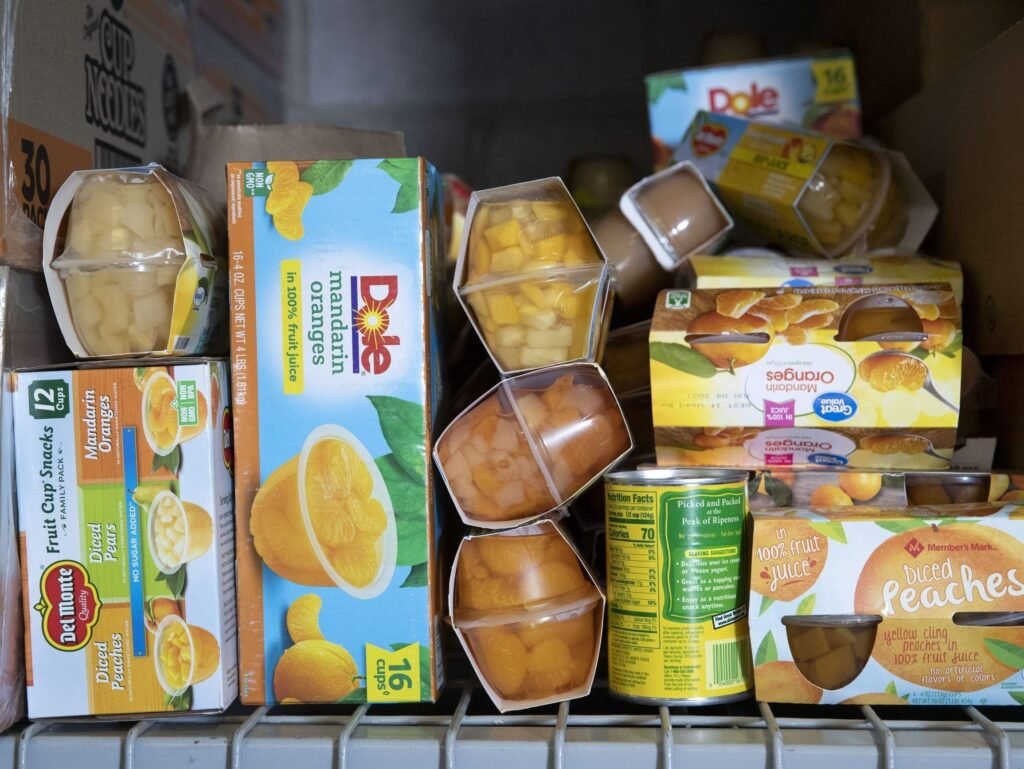Guest column: Eliminating plastics should not jeopardize food security

Guest column: Eliminating plastics should not jeopardize food security

Article content
By: Sylvain Charlebois
Plastic undoubtedly remains a significant environmental concern and there is a widespread consensus that it demands urgent attention.
While addressing the widespread use of plastic bags and utensils presents relatively straightforward challenges, the real dilemma lies in addressing plastic packaging, particularly within the grocery store sector.
This summer, the Canadian government introduced the Pollution Prevention (P2) planning notice, a targeted initiative aimed at primary plastic packaging used for food. P2 seeks to compel Canada’s largest grocery retailers to formulate pollution prevention strategies with a focus on reducing, reusing and reimagining primary food plastic packaging with a strong emphasis on incorporating recycled materials.
Kudos to the government for taking this vital step.
A striking statistic reveals that roughly a third of all plastic packaging in Canada pertains to grocery store food packaging, much of which is designed for single-use purposes. From juice boxes and produce bags to yogurt containers and meat trays, the sheer ubiquity of such packaging necessitates immediate action.
Initially, Environment and Climate Change Canada proposed voluntary industry targets, but it is not challenging to envision a progression toward more stringent obligations over time. However, recent developments indicate a notable shift in the approach’s tone as the industry’s commendable efforts to reduce plastics are seemingly undervalued.
The ramifications of P2 could be profound for our access to fresh produce. Canada imports approximately $7 billion worth of fruit and $3.5 billion in vegetables annually.
International trade plays a pivotal role in ensuring affordable food for Canadians. While we export our food globally, we also depend on global markets for our sustenance. Hence, the economics of food packaging hold immense significance, both domestically and internationally.
Surprisingly, many foreign suppliers who provide produce to Canada remain unaware of P2 and its potential repercussions. Over the years, several food manufacturers, including Nestle, have exited the Canadian market for various reasons, withdrawing some brands. P2 could further discourage key suppliers that support our healthy aspirations.
A few years ago, a comprehensive assessment led by one of Canada’s foremost supply chain management and food waste experts, Martin Gooch, projected that ineffective packaging could lead to nearly half a million metric tonnes of increased food losses and waste compared to current levels, valued at $2.5 billion. It’s worth noting that this estimate is considered conservative.
Significantly, the highest losses are anticipated in perishable commodities vulnerable to damage or those necessitating specialized packaging. Plastic packaging often extends the shelf life of products sensitive to ethylene, a natural ripening agent produced by fruits and vegetables. For example, carrots are susceptible to ethylene produced by neighbouring produce, which shortens their shelf life, affects their appearance and diminishes their taste.
Less appealing produce at retail translates to reduced consumer desirability.
The report’s findings were quite specific, indicating that beans would suffer the most significant increase in losses at 100 per cent, followed by soft berries and cucumbers at 90 per cent. Leafy greens (73 per cent), carrots (61 per cent), cherries and grapes (50 per cent), beets (45 per cent) and soft fruit (34 per cent) would also see substantial losses. Across the 20 commodities currently sold prepackaged in plastic, moving away from plastic packaging would result in a 17 per cent increase in loss.
In essence, the elimination of plastics could inadvertently impact food prices at retail.
Environment and Climate Change Canada’s most significant oversight appears to be its failure to consider the unique logistical and trade realities of Canada. Less frequently mentioned is the fact that these changes would lead to increased labour requirements, higher operational costs and other forms of pollution, such as supply-chain emissions.
More comprehensive data and a thorough scientific evaluation of the consequences are unquestionably required.
There is no denying the urgency of eliminating plastics from grocery stores. However, it is equally vital to understand the potential repercussions of such actions.
Currently, it appears that Environment and Climate Change Canada is indifferent to the future blame that may be solely directed at the food industry for higher food prices when it was the implementation of the department’s policies that contributed to this outcome.
A more nuanced approach is undoubtedly warranted — one that adeptly balances environmental objectives with the economic and logistical realities of Canada’s food industry.
Sylvain Charlebois is a professor and senior director of the Agri-Food Analytics Lab at Dalhousie University and co-host of The Food Professor podcast.
Article content
By: Sylvain Charlebois
Plastic undoubtedly remains a significant environmental concern and there is a widespread consensus that it demands urgent attention.
While addressing the widespread use of plastic bags and utensils presents relatively straightforward challenges, the real dilemma lies in addressing plastic packaging, particularly within the grocery store sector.
This summer, the Canadian government introduced the Pollution Prevention (P2) planning notice, a targeted initiative aimed at primary plastic packaging used for food. P2 seeks to compel Canada’s largest grocery retailers to formulate pollution prevention strategies with a focus on reducing, reusing and reimagining primary food plastic packaging with a strong emphasis on incorporating recycled materials.
Kudos to the government for taking this vital step.
A striking statistic reveals that roughly a third of all plastic packaging in Canada pertains to grocery store food packaging, much of which is designed for single-use purposes. From juice boxes and produce bags to yogurt containers and meat trays, the sheer ubiquity of such packaging necessitates immediate action.
Initially, Environment and Climate Change Canada proposed voluntary industry targets, but it is not challenging to envision a progression toward more stringent obligations over time. However, recent developments indicate a notable shift in the approach’s tone as the industry’s commendable efforts to reduce plastics are seemingly undervalued.
The ramifications of P2 could be profound for our access to fresh produce. Canada imports approximately $7 billion worth of fruit and $3.5 billion in vegetables annually.
International trade plays a pivotal role in ensuring affordable food for Canadians. While we export our food globally, we also depend on global markets for our sustenance. Hence, the economics of food packaging hold immense significance, both domestically and internationally.
Surprisingly, many foreign suppliers who provide produce to Canada remain unaware of P2 and its potential repercussions. Over the years, several food manufacturers, including Nestle, have exited the Canadian market for various reasons, withdrawing some brands. P2 could further discourage key suppliers that support our healthy aspirations.
A few years ago, a comprehensive assessment led by one of Canada’s foremost supply chain management and food waste experts, Martin Gooch, projected that ineffective packaging could lead to nearly half a million metric tonnes of increased food losses and waste compared to current levels, valued at $2.5 billion. It’s worth noting that this estimate is considered conservative.
Significantly, the highest losses are anticipated in perishable commodities vulnerable to damage or those necessitating specialized packaging. Plastic packaging often extends the shelf life of products sensitive to ethylene, a natural ripening agent produced by fruits and vegetables. For example, carrots are susceptible to ethylene produced by neighbouring produce, which shortens their shelf life, affects their appearance and diminishes their taste.
Less appealing produce at retail translates to reduced consumer desirability.
The report’s findings were quite specific, indicating that beans would suffer the most significant increase in losses at 100 per cent, followed by soft berries and cucumbers at 90 per cent. Leafy greens (73 per cent), carrots (61 per cent), cherries and grapes (50 per cent), beets (45 per cent) and soft fruit (34 per cent) would also see substantial losses. Across the 20 commodities currently sold prepackaged in plastic, moving away from plastic packaging would result in a 17 per cent increase in loss.
In essence, the elimination of plastics could inadvertently impact food prices at retail.
Environment and Climate Change Canada’s most significant oversight appears to be its failure to consider the unique logistical and trade realities of Canada. Less frequently mentioned is the fact that these changes would lead to increased labour requirements, higher operational costs and other forms of pollution, such as supply-chain emissions.
More comprehensive data and a thorough scientific evaluation of the consequences are unquestionably required.
There is no denying the urgency of eliminating plastics from grocery stores. However, it is equally vital to understand the potential repercussions of such actions.
Currently, it appears that Environment and Climate Change Canada is indifferent to the future blame that may be solely directed at the food industry for higher food prices when it was the implementation of the department’s policies that contributed to this outcome.
A more nuanced approach is undoubtedly warranted — one that adeptly balances environmental objectives with the economic and logistical realities of Canada’s food industry.
Sylvain Charlebois is a professor and senior director of the Agri-Food Analytics Lab at Dalhousie University and co-host of The Food Professor podcast.
Be the first to write a comment.












Postmedia is committed to maintaining a lively but civil forum for discussion and encourage all readers to share their views on our articles. Comments may take up to an hour for moderation before appearing on the site. We ask you to keep your comments relevant and respectful. We have enabled email notifications—you will now receive an email if you receive a reply to your comment, there is an update to a comment thread you follow or if a user you follow comments. Visit our Community Guidelines for more information and details on how to adjust your email settings.